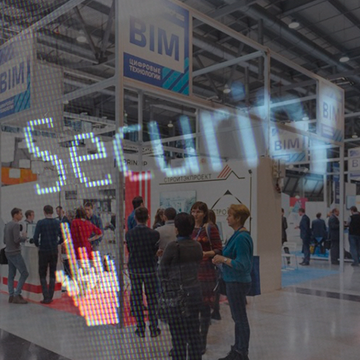Cybersecurity of the cities of the future will be one of the topics of the 100+ Forum Russia

Experts from all over the world will tell you what threatens smart cities with automated life support systems and how to protect modern megacities from cyber attacks.
During the session "Digital Security of Cities", experts will discuss the risks of smart infrastructure and cyber threats for the construction and operation of smart cities buildings, as well as methods of intellectual protection of the urban environment. Among the experts: Kirill Kruglov, senior researcher and developer at Kaspersky Lab JSC, which is part of the international non–profit project Securing Smart Cities (Information Security of Modern Cities), Grigory Akhunov, Head of Information security at Rostelecom in the Urals, Sergey Kazakov, head of the Certification Center at SKB Kontur, and others.
For the first time, the forum will discuss the creation of a global digital protection system for modern cities. The logistics of the infrastructure that ensures the comfort of life is becoming more and more computerized. The formation of a unified information network will allow not only to control and protect vital systems of cities and individual buildings, but also to operate with big data - that is, to engage in predictive analytics – to anticipate and prevent potentially dangerous situations. In addition, experts will propose methods to improve the reliability of digital urban planning technologies. "Smart cities of the future are, first of all, safe cities. We will talk about technologies that will be one step ahead in terms of security in the broadest sense of the word," said Vera Belous, head of the working group of the Organizing Committee of the 100+ Forum Russia.
The forum's experts will tell you how to protect modern smart buildings from cyber threats and when megacities will be fully protected by digital technologies.: "Today, elevators, fire extinguishing and video surveillance systems, traffic lights, lighting, power supply and other life support systems are controlled by computers that collect and process data. Like any office systems with Internet access, they can be exposed to viruses and spyware. Targeted attacks are especially dangerous in this sense, when someone tries to disable these systems, steal data, or change the logic of operation. In the event of an automation failure, a lot of undesirable events may occur. For example, all traffic lights in the city or electricity in houses will be turned off. In 5-10 years, there will be an even more significant leap in the digitalization of cities – unmanned vehicles will appear, which will also be controlled automatically. Failure of these systems can pose a threat to life and health," Kirill Kruglov comments. - Almost every third system related to smart cities encounters malware at least once in six months. To make their work safer, we are developing special operating systems for equipment that controls the same traffic light or air conditioner. They will prevent incorrect actions that may occur as a result of a failure or an intentional attack. Any attempts to do this will be prevented right at the operating system level."
Grigory Akhunov will present methods for increasing the digital "intelligence" of cities that are already being used today: "Any infrastructure is potentially susceptible to cyber threats. The degree of its stability is determined by the means of protection. Data processing systems should be especially protected, such as video analytics systems, automated systems for managing critical facilities, and public Wi-fi networks. When implementing any major projects in both the business and urban planning sectors, it is necessary to avoid the risks associated with cyber attacks and create the next generation of products and services that the digital economy needs."

